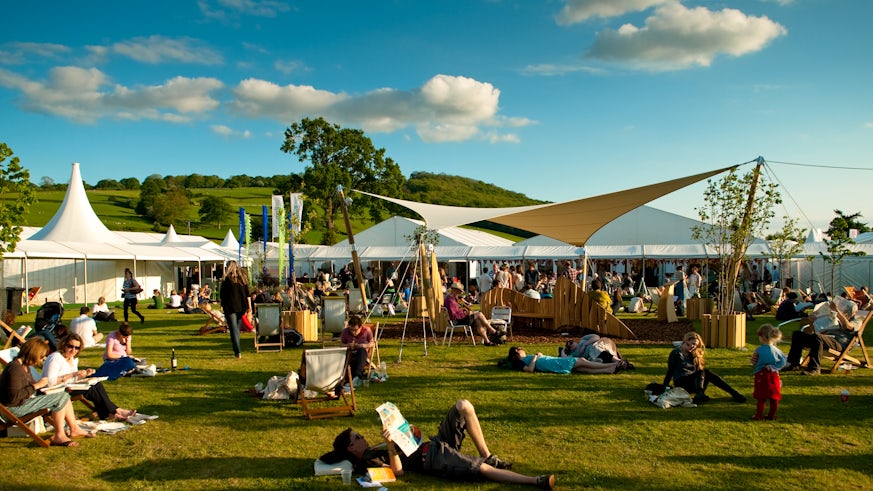University experts tackle global issues at Hay Festival
20 May 2015

Experts from Cardiff University will tackle some of the most pressing issues facing society before audiences at a world-famous literature festival.
Rising sea levels, mass surveillance and energy consumption will be on the agenda as part of The Cardiff Series of Cardiff University talks at this year's Hay Festival.
In a separate discussion, Professor Richard Sambrook, Director of the University's Centre for Journalism, will look at the freedom of the press with other media experts and Channel 4 news anchor Jon Snow.
Elsewhere, Dr Daphne O'Doherty, from the School of Engineering, will consider the skills required by young engineers, while Professor Damian Walford Davies discusses his latest poetry collection.
The Hay Festival runs in the mid Wales town from 21-31 May attracting world-class writers, filmmakers, comedians,

On 30 May, Jon Snow hosts a discussion on the freedom of the press with a selection of media heavyweights including Cardiff University's Professor Sambrook, a former director of Global News at the BBC.
It is part of a series of events based around the 800th anniversary of the Magna Carta looking at what the country might want from a new charter.
Professor Sambrook said: "This year's attacks in Paris and Copenhagen show that journalism is on the front line in terms of free speech. However we also have to balance responsibilities – how can journalism be both independent and accountable?
"As the phone hacking scandals continue to unravel in the UK courts, and as media organisations continue to cut editorial budgets, what are we entitled to expect from journalism, what does society require of journalism?
"We'll be exploring these and other issues in the discussion about rights, free speech and today's society."
In the first event of The Cardiff Series, Professor Chris Tweed, head of the University's Welsh School of Architecture, explores the complex relationships between thermal comfort and energy consumption, covering such topics as the fireplace and fuel poverty.
Professor Tweed, an expert on how people interact with buildings and their technologies, appears at 1300 on Friday, 22 May.
Later that day, at 1900, members of the Cardiff University-led research project Digital Citizenship and Surveillance Society will discuss mass surveillance.
The research project aims to explore digital citizenship in light of the governmental surveillance measures revealed by US whistle-blower Edward Snowden.
The discussion - involving Dr Arne Hintz, Dr Lina Dencik and Dr Jonathan Cable - will look at how surveillance works, who is monitored and what people can do to protect themselves.
The third Cardiff Series event, at 1900 on 27 May, considers the consequences of rising sea levels.
Dr Caroline Lear and Dr Rhoda Ballinger, both from the School of Earth and Environmental Sciences, will discuss the possible impact on global resources, coastal societies and mega-cities.
The Cardiff Series is rounded off on 28 May at 1730 when Professor Luke Clements, director of Cardiff Law School's Centre for Health and Social Care Law, considers the global development of the 'carers' movement' and previews a film celebrating the 50th Anniversary of the UK carers' movement – entitled 'Does Your Carer take Sugar'?
Innovation and skills will be on the agenda on 26 May at 1600 when Professor O'Doherty discusses how young people can be equipped to deal with rapid developments in engineering.
She will be joined by the Government's Chief Scientific Advisor for Business, Innovation and Skills, John Perkins, and Tata Steel HR Director Martin Driscoll.
And Professor Damian Walford Davies, from the School of English, Communication and Philosophy, discusses and reads from his poetry collection Judas on Friday, 29 May at 1900.